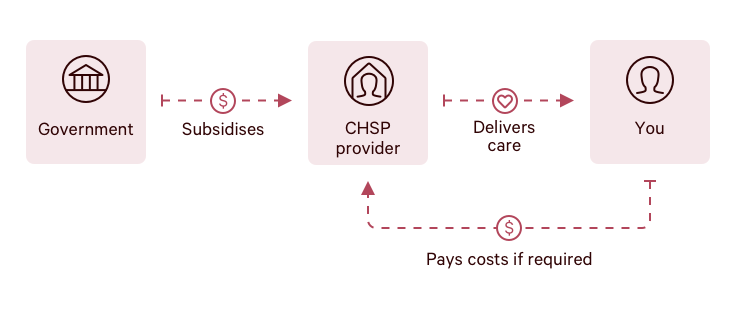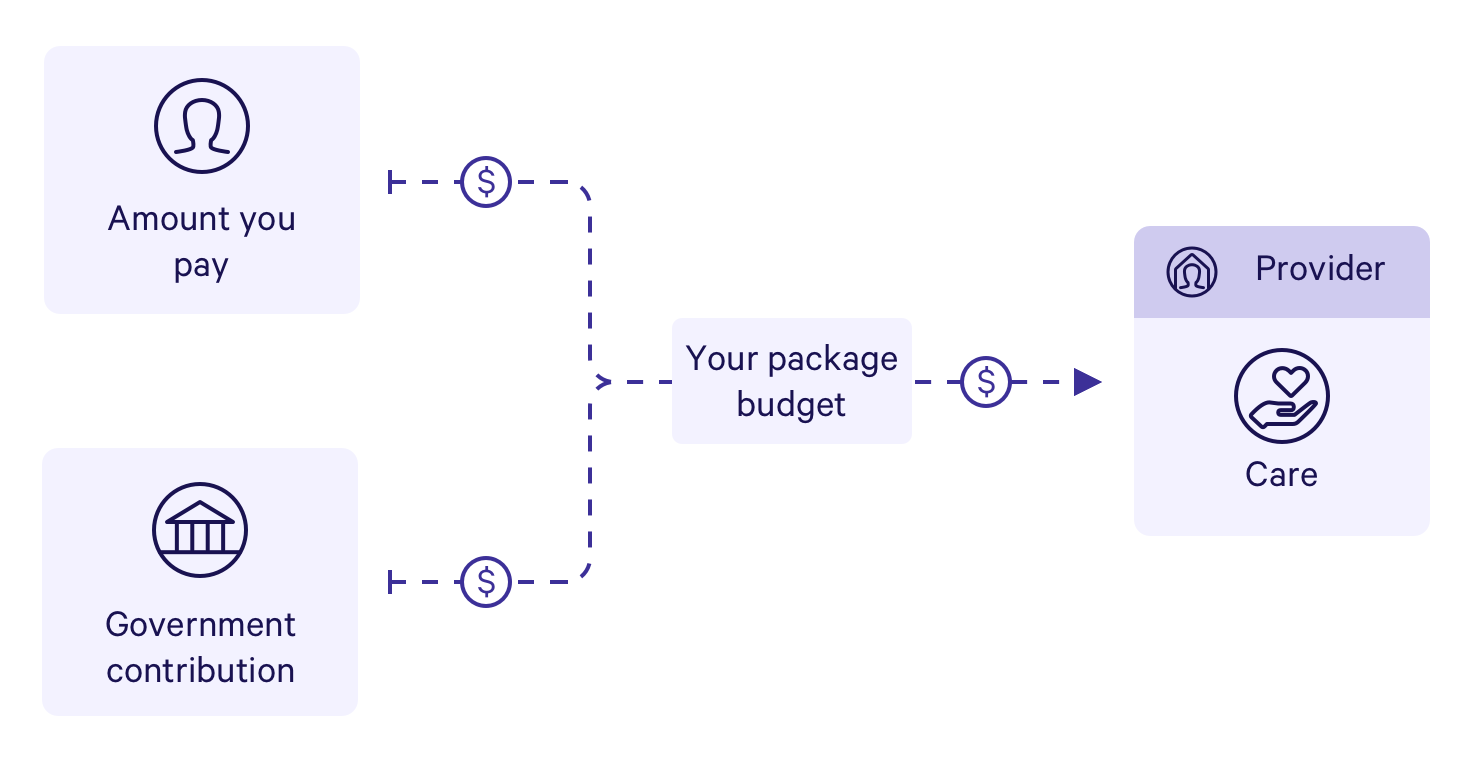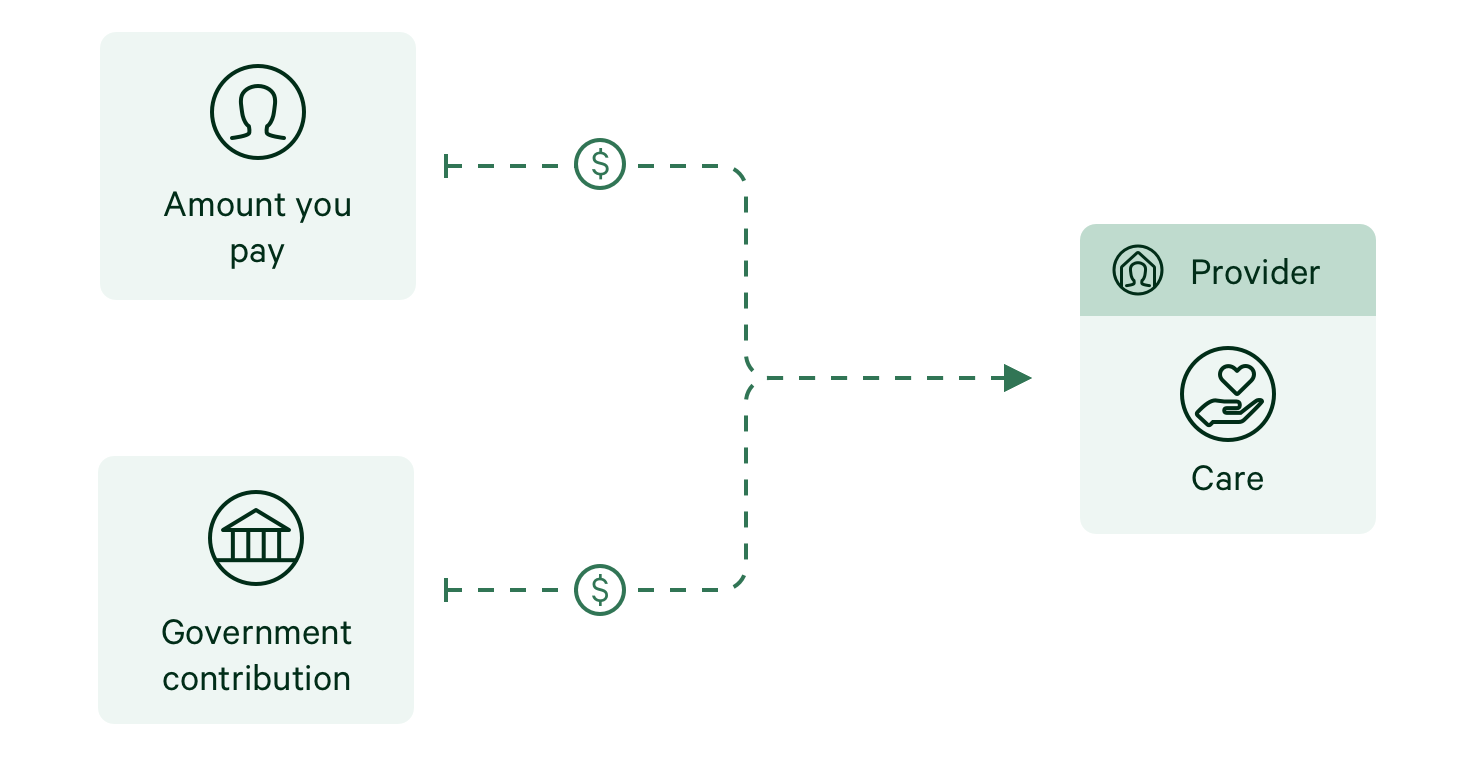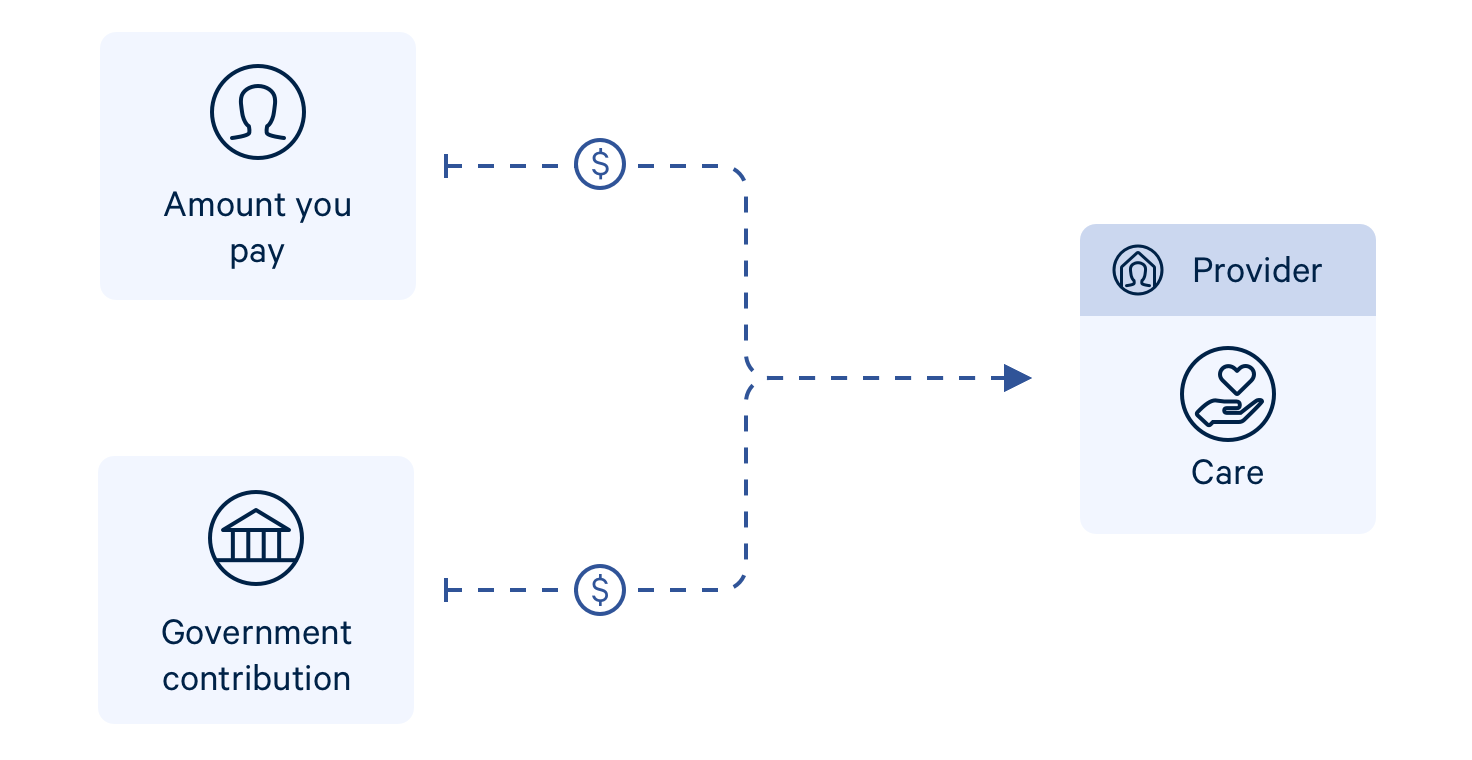A key question to ask when looking for aged care services is: What will this cost me? To answer this, there are a few different factors to consider.
How much you pay for aged care services depends on:
- the type of help you need,
- the provider you choose,
- your financial situation, and
- the services you receive.
How do aged care costs work?
All the providers listed on this website, in the Find a provider tool, can provide you with government-subsidised care. This means the government will pay part or all of your costs, making it more affordable for you.
Different providers have different charges, and there are various costs and fees for each type of care. So, it’s important to understand how all the costs and fees work together and how to compare provider costs. This will help you choose the provider that works best for your budget and care needs.
Depending on which aged care service you wish to access, you may need to get an assessment of your income, or income and assets (means assessment).
Understanding costs for different types of care
Read more below about the types of costs and fees you may have to pay depending on what type of care you have been assessed as eligible for.
What if I can't afford it?
If you’re worried that you may not be able to afford your home care, residential respite care or permanent residential care costs, you can ask to be considered for financial hardship assistance. If you are eligible, the Australian Government will pay some or all of your aged care costs.
If you are receiving care through another aged care program, please speak to your provider.
Learn more about financial hardship assistance.
Can I seek financial advice?
Yes. In fact, it is recommended. You may want to talk to a financial adviser about your finances.
You can also receive free financial information through Services Australia's Aged Care Specialist Officers (ACSOs) and Financial Information Service (FIS). They can also provide information about the Home Equity Access Scheme.

New funding arrangements are coming
From 1 November 2025, the way aged care fees are calculated will change. This includes how much you and the government contribute.
We have published information about the upcoming changes to aged care funding. We also have a fee estimator that lets you see how much you may have to contribute towards services under the new Support at Home program.










